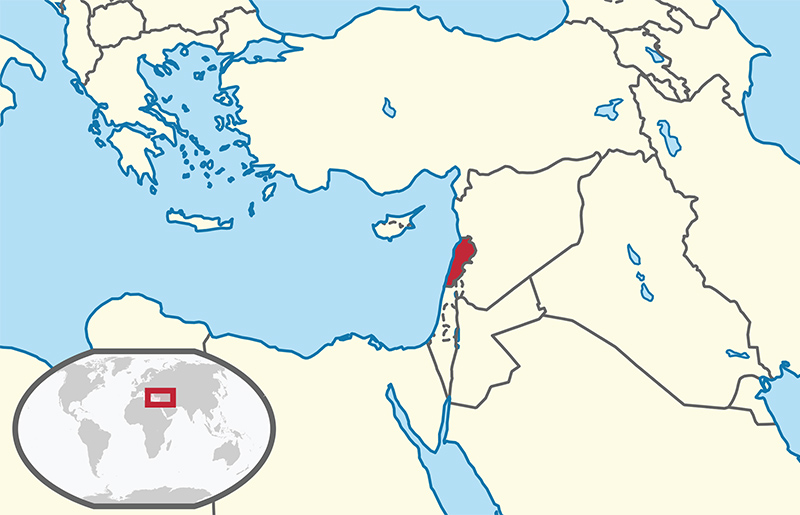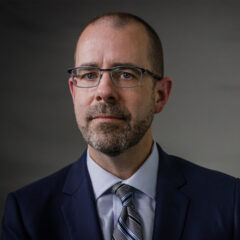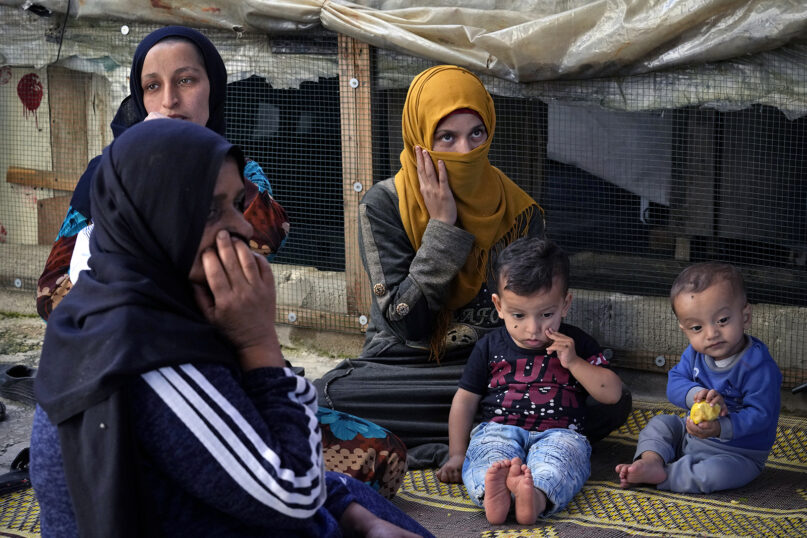(RNS) — Lebanon teeters on the brink, with the country’s openness its biggest asset and liability. While exact numbers are unknown, the society is evenly divided between Christians, Shia Muslims and Sunni Muslims, with the ancient Druze community adding a smaller fourth element. Such balance is unique in the Middle East and sets the nation apart from its neighbors. But internal forces and external actors threaten the future of coexistence, which may cause its disintegration.
Having visited Lebanon myself on multiple occasions, the small country of 4 million is constantly in a state of crisis. The influx of more than one million Syrian refugees, hyperinflation and government impotency have created existential challenges. The Lebanese are smart, resourceful and used to walking such a high wire. But for how much longer?
During a recent visit to the country hosted by the Adyan Foundation, delegates met with a variety of political and religious leaders and civil society activists. Perspectives ranged from despondent to hopeful, but all were frustrated by the increasingly unsustainable situation of the country.
Lebanon’s Sunni prime minister, Najib Mikati, expressed concern about demographic change in Lebanon and across the region, which is happening particularly fast in the Levant. He said talk of tolerance is “meaningless” if all religious minorities leave. Lamenting the outmigration of Christians from Iraq, he said the region needs them. “Without them, there is no meaning for ‘tolerance’ in the region,” and all talk of it is “artificial.”
In a separate meeting, Lebanon’s Christian foreign minister, Bou Habib, echoed these fears. “Lebanon and diversity are twins,” he stated. “Many countries have majority and minority communities, but they don’t feel equal to each other, except in Lebanon.” He believes if this diversity disappears, Lebanon will lose its distinct character from its neighbors — or if coexistence fails, then a future of sectarian conflict awaits.

Lebanon, red, located in the Middle East. Map courtesy of Wikipedia/Creative Commons
Notably, Lebanon is the only Arab nation where Christians hold real political power alongside Muslims as equals. Lebanon’s confessional system awards the presidency to a Maronite Christian, the prime minister to a Sunni Muslim and the speaker of Parliament to a Shia Muslim. While such an approach is foreign to Western nations, the apportionments helped end a bloody civil war in the 1980s and brought peace. Yet domestic vested interests and external actors hamper the system from working effectively. The political setup is increasingly anachronistic and unable to meet Lebanon’s needs.
Such frustration was evident in the 2015 Garbage Uprising and the 2019 mass protests, which, Adyan’s Elie Al Hindy noted, created a push for secular governance and led to the election of a block of independent parliamentarians (~10%) who eschewed allegiance to the older sectarian parties. Yet reform has only gone so far. Seemingly many Lebanese voters still trust sectarian protections over uncertain promises of equal citizenship from a non-religious approach. The tensions between confessional prerogatives, government power and individual rights remain unresolved.
But most Lebanese remember the painful sectarian battles in the nation’s past. The constitution forces groups to talk, to sit at the same table, which they still do. That no group has a majority prevents laws that blatantly favor one over the other. The balance between the big three faiths plus the Druze creates space for diversity. During the Adyan delegation, Sunni, Shia, Christian and Druze religious leaders shared how they foster inter-faith bonds, which are generally strong at the personal level among Lebanese of different backgrounds. Politics is what divides.
Yet, activists lamented how these religious leaders are empowered to control marriages and family law. And while 18 religious groups are recognized, many more lack representation and legal standing as legitimate faith communities. Freedom of religion is only protected for the recognized groups, but no unrecognized group faces persecution for their practices. It is the only Arab nation whose constitution protects freedom of conscience for individuals, and conversion is not legally punished.
With this, the million-plus Syrian refugees, who are overwhelmingly Sunni, threaten to upset the delicate religious balance. There is no roadmap for the return of the refugees, because the major powers have no Plan B with Bashar Al Assad refusing to cede power. As a result, both Syrian refugees and Lebanon suffer. As Habib Afram, president of the Syriac League, remarked, “refugees are a huge burden on a broken economy and political system. The West is not helping them to return home safely.” Analysts cited that 40% of all new births in Lebanon are to Syrian families. A generation of Syrian children only know Lebanon as home.
Despite its small size, Lebanon is too big to fail. It is a true crossroad country between different worldviews, between East and West. Some glimmers of light exist. The presence of a new bloc of independents in parliament may force real change and clean governance. The rapprochement by Saudi Arabia and Iran may help bring the political factions to the table, as both are major backers to the Sunni and Shia communities, respectively. The role played by the United States, France and others, such as the agreement on a shared gas field between Lebanon and Israel, demonstrates the importance of Western leadership. They must press for clean governance, demilitarization and respect for individual rights.

Knox Thames. Courtesy photo
Lebanon continues to hang on, despite the many challenges, both self-inflicted and brought on by outside forces. To succeed, Lebanese from all backgrounds must recommit to a shared vision of coexistence, or it may fall apart. Lebanon is too big to fail, but the vision of many of its vested players is too small for the country to succeed.
(Knox Thames served in a special envoy role on religious minorities during the Obama and Trump administrations. He is now a senior fellow at Pepperdine University. Follow him on Twitter at KnoxThames. The views expressed in this commentary do not necessarily reflect those of Religion News Service.)





